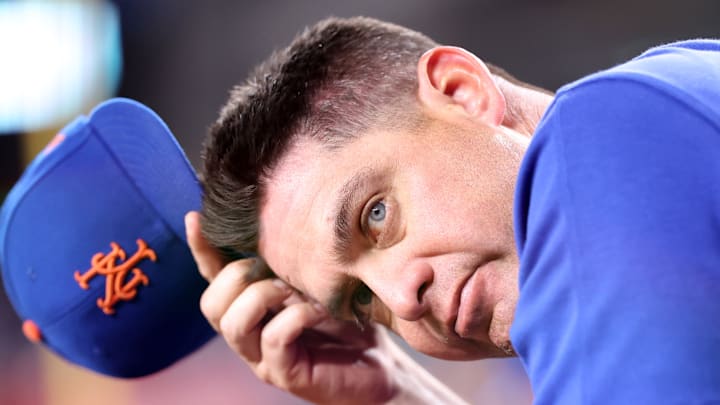Game one between the New York Mets and Atlanta Braves on Monday was an edge of your seat thriller. Removing your eyes from the screen for even in the last few innings meant potentially missing a big moment. The back-and-forth battle between NL East foes had playoff implications. Larger than surviving, winning the first game meant the Mets could better set their rotation for the first round. They’re now able to use Luis Severino rather than plug in a bunch of bullpen arms or someone on short rest.
It felt like the Mets already played a playoff game and yet the official postseason action doesn’t begin until today. In that 161st game of the year, we received a few final reminders.
Resiliency comes to mind. The Mets showed no signs of being able to win the game. Coming back twice was miraculous. For the clincher to come off the bat of Francisco Lindor served another indication as to why he should be the real MVP while Shohei Ohtani is just the best player in the league. There’s a difference.
What else were we reminded of? It was Carlos Mendoza and how he can win or lose them games.
Mets manager Carlos Mendoza didn’t stop his bold decision-making with the season on the line
We need to go back to the weekend for some context. Edwin Diaz was used on Sunday when they probably didn’t need to. He hadn’t pitched in a week and getting some action seemed necessary. Was that a part of the reason why he was so not himself on Monday? Failure to cover first base looked like it would doom the Mets.
A Diaz meltdown incurred after. Pitching Coach Jeremy Hefner told him he was done, but after the home run by Lindor, he insisted to Mendoza to leave him in.
Edwin Díaz shares what he told Carlos Mendoza after Francisco Lindor's home run in the 9th inning:
— SNY (@SNYtv) September 30, 2024
"I got this s--t." pic.twitter.com/ogFUIItV1M
Mendoza’s bullpen usage didn’t set the Mets up well for the Wild Card round. Diaz was used a lot. So was Phil Maton who got tagged for a couple of runs in this game, too. He has now pitched in three consecutive days. There won’t be any rest for his weary arm.
The consequences of using those two a lot recently showed in Monday’s win. Neither was particularly sharp. We’ll have to see how the Mets deal with possibly not having either available on Tuesday and if they do come out of the bullpen, how good are they?
Questioning the manager’s use of relievers is a must for fans because it is the easiest way to judge. However, the Mets have another area where we can deeply analyze the skipper. This is a team that depends on platoons, pinch hitters, and defensive substitutions. They decided to start the first game with Harrison Bader batting ninth. Opportunities in each of his first two at-bats to drive in a run ended in failure. Lifting him for Jesse Winker would’ve made sense in the top of the fifth with ducks on the pond and two out. Instead, it was the next time around in the top of the eighth when Mendoza pulled the trigger.
Starling Marte came off the bench and singled to keep the rally going. In his next at-bat, Marte added another single and would score what became the tying run when Lindor homered one batter later. Both at-bats had Marte facing a righty. At times this season, Mendoza has been a little too in love with playing the percentages. He went against this logic here and it was one of the reasons why they won the game.
Mendoza’s managing style leaves a lot up for debate. He’s a great match with David Stearns in that way. He, too, makes questionable calls that when they work out can grade well. When they don’t yield the results, we feel completely differently.
The pressure is on the rookie manager to win a championship for the Mets in a year when many counted them out from the start. He has shown one decision can make or break this team. Then again, maybe one speech can do the trick just as much.
"Before the year started, nobody thought we would be in this position. Everyone had us out."
— SNY (@SNYtv) September 30, 2024
Carlos Mendoza addresses the Mets after they clinched a playoff spot: pic.twitter.com/qVbzVdtvv8
